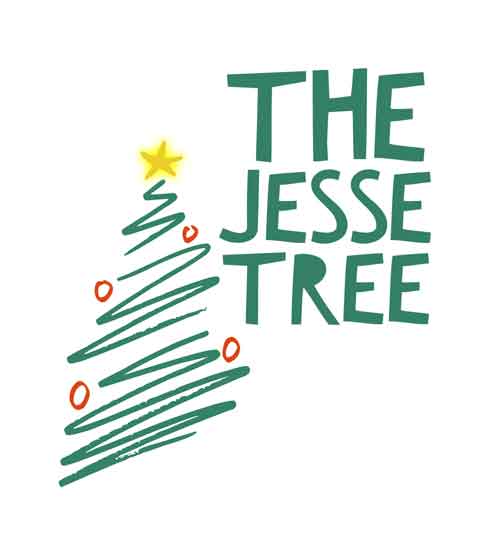The Wise Men
Scripture:
Matthew 2:1-12
Reflection:
This is one of the stories associated with Christmas we need to consider apart from all the added ideas and images the centuries have added into it. The Bible never identifies them as kings. It never tells us how many were in the group. It certainly doesn’t give us any of their names.
Matthew tells us they are from “the east.” He also makes it clear they are important enough to get the attention of King Herod. He also calls these travelers “Magi.” This word comes from Persia and was long used as a term that meant priest or shaman. Since the most important religion in Persian was Zoroastrianism, it is also no surprise that these travelers put great emphasis on seeing the stars as portents of important future events.
You might remember that the Persian Empire is many centuries older than the Roman Empire. It plays an important role in the later books of the Old Testament. Esther, for example, becomes a queen within the Persian imperial court.
Some Christians are uncomfortable with any suggestion that God would say or reveal anything to those practicing another religion. But most of the church’s early scholars and leaders had no problem with this idea. After all, they could point to Melchizedek or Job, neither of which were part of the Mosaic Covenant or within Israel. They also found ideas and truths in writers like Plato or even the teachings of Buddhism that they believed could help them point people in that religion to the One True God.
Rather than insisting everything about every religion outside Judaism and Christianity was wrong, they thought it reflected the truths of the Bible when they could say, “Yes, we also accept this idea. But, building on that, let us show you how the message of Jesus gives a much clearer picture of God.” This is exactly what the Apostle Paul does when addressing the Greek philosophers at Athens (Acts 17:22-31).
God does, indeed, love the world so much that He sent His One and Only Son. And God calls upon those who come to know Jesus as King and Savior to share that love for the world. Not every conversation with a friend or co-worker or relative who adheres to a different religious faith needs to begin with the implied rebuke: “Your religion is dead wrong and there’s nothing of value I could learn from it.” To read the story of the Magi and not see God’s desire that we share the message of Christ through fostering relationships and conversations with people of other religious beliefs (as much as those with no religious beliefs) is to miss a great truth.
The story is also incomplete, as most readers in the ancient world would have surely understood. Such gifts, in that culture, would have required reciprocal gifts be given. It might be easy to dismiss that idea, noting that Joseph was simply too poor to provide any gifts for the Magi.
But many early Christians believed a reciprocal gift was given. It just did not happen right then and there.
The world’s first actual Christian nation (or kingdom) was not Rome. It was not Judea. It was the Kingdom of Edessa (close to the modern city of Urfa in southeastern Turkey). This ancient city was near the western edges of the old Persian Empire. The early church believed the city of Edessa was home of one or more of the Magi. By the second century, there was a strong Christian presence in the city. By the beginning of the third century, most of the ruling families of Edessa had become Christians.
Can you see it? The gifts brought to Bethlehem by distant travelers and starwatchers from the ancient east were repaid as early Christians brought the message of salvation back to the city. In this, the descendants of the Magi were brought under the grace and mercy of God.
Two wonderful ironies meet us as we reflect, once again, on the Magi.
First, the initial impression might be the gifts described in Matthew 2 are way beyond the value of anything that might be reciprocated. They are not. Gold and frankincense and myrrh all perish over time or might be stolen by thieves. But something neither rust nor decay nor thieves can diminish is carried and delivered by the bearers of the Good News of King Jesus.
And the second irony is simply this: in Matthew 2 the Magi following a star to Bethlehem bring gifts to Jesus. These are the initial gifts. The reciprocal gift is similar. The Good News comes to Edessa, and to men and women in every place and time. It is given to those who follow in the steps of Magi, follow the light they are given and seek out the child. And so those who once brought gifts to the child will discover, in time, that the real gift being given is that very child. Given for Israel. Given for Rome. For Edessa. For the world.
Family:
For this lesson you will be finally adding on star to the top of your Jesse Tree. There are many ways you can do this. You can buy a star, or you can make one. It can be as simple or as elaborate as your resources, time, and abilities allow. If your children are small, a simple star can engage them as you share the lesson. For older children, you can obviously plan something more complex or artistic.
After you read the story, help your family by asking some questions to go back over the main points.
Who are these Magi? Do any other translations of the Bible use any different words? Are there any footnotes (show them what those are) that can help us explain the word? Can we look it up in a dictionary or online?
Where are they from? Can you show them a simple map and point to where “east” would be from Jerusalem? (Note: the land directly east of Jerusalem opens up in vast amounts of desert where few people lived. “East” would be further north, as well as toward the east. This is the so-called “Fertile Crescent” or the land “Between the Rivers” [Mesopotamia].)
Why would they go first to Jerusalem? What does King Herod really think about a king being born in Bethlehem? What did the Magi do to trick King Herod?
What happened when the Magi came to Bethlehem? What do you think Mary and Joseph thought when these men arrived with their gifts?
The Magi were not Jewish. They did not normally worship in Jerusalem. Why do you think God showed them (we don’t know how God did this) that the King of the Jews was born? Why do you think they traveled so far, since they were not Jews? What do you think this story tells us about God caring about people who live far away and have never read the Bible or heard the story of Jesus? What can we do to be more like the Magi in our love and worship of Jesus?
Together you can put the star on the top of your Jesse Tree. If you want, you can sing the first verse and chorus of “We Three Kings” or maybe just the chorus.
Prayer:
To accompany putting the star on top of the Jesse Tree
Heavenly Father
You have filled the night sky with stars and given us the sun to mark the day and the moon to mark the night. We can walk through forests or across meadows or over bridges because you are sending light upon the world.
On this Christmas Eve, we put this star at the top of this tree. We do this because you let wise men know, even in faraway places, that you were sending King Jesus into the world. A star would show them where to travel. And, one day, a star would show them where to find Jesus.
So, we put the star here to thank you for leading us to Jesus and to remind everyone in our house that the great gift of Christ is not what the Magi brought with them. It’s what Jesus brings to the world.
Amen.


